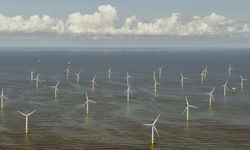Hong Kong-based telecoms company HGC Global Communications estimates that up to 25% of traffic between Asia, Europe, and the Middle East, including internet traffic, has been affected.
HGC is actively rerouting traffic to minimize disruptions for customers and is extending assistance to affected businesses. However, the company has not disclosed details regarding the cause of the cable damage or responsible parties.
Seacom, a South Africa-based company owning one of the affected cable systems, has informed CNN that repairs will not commence for at least a month. Delays are attributed in part to the time required to secure permits to operate in the affected area.
Underwater cables play a crucial role in powering the internet, often funded by tech giants such as Google, Microsoft, Amazon, and Meta (formerly Facebook). Damage to these subsea networks can result in widespread internet outages, as seen following the Taiwan earthquake in 2006.
The incident in the Red Sea follows recent warnings from the official Yemeni government about the potential targeting of cables by Houthi rebels. While Israeli news reports suggested Houthi involvement in the damage, rebel leader Abdel Malek al-Houthi denied these allegations, stating they have no intention of targeting cables providing internet services.
The Houthis have now pointed fingers at British and US military units in the area for the damage, according to their official news agency. CNN has reached out to both the UK and US governments for comments.
Seacom's Chief Digital Officer, Prenesh Padayachee, highlighted the challenge of obtaining permits from the Yemeni maritime authority, estimating it could take up to eight weeks. During this time, client traffic will continue to be rerouted until the damaged cables can be repaired.
Notable affected networks include Asia-Africa-Europe 1, a 25,000-kilometer cable system connecting Southeast Asia to Europe via Egypt, and the Europe India Gateway (EIG), which has also sustained damage. EIG connects Europe, the Middle East, and India, with Vodafone as a major investor.



